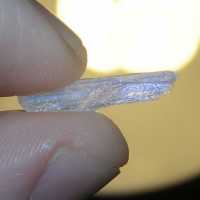
20 Mar Meth Addiction: Using Transcranial Magnetic Stimulation To Reduce Impulsive Behavior
MedicalResearch.com Interview with:
Jiajin Yuan, Ph.D
Professor of Psychology
Director, The Laboratory for Affect Cognition and Regulation,
Faculty of Psychology, Southwest University,
Chongqing, China
MedicalResearch.com: What is the background for this study?
Response: Impulsivity is a critical symptom of methamphetamine addiction, and this symptom plays an important role in compulsive, unresistable drug-seeking behavioral and is thus detrimental to the rehabilitation. Impulsivity in drug addiction also contributes to disruption of people’s goal pursuit/goal maintenance, and aggressive/violent behaviors after drug use. Also, lack of suitable intervention for addiction-related impulsivity is known to be a risky factor for the drug reuse after successful rehabilitation.
Thus, rehabilitaton targeted at impulsivity in methamphetamine addicts is important to comprehensive rehabilitation of the drug addiction and also to successful return to social life after rehabilitation
MedicalResearch.com: What are the main findings?
Response: Our key findings are that 1 hertz repetitive transcranial magnetic stimulation over the left prefrontal cortex increased impulsivity control in a two-choice oddball task, which is related to the use of a more conservative, goal-oriented response strategy after rehabilitation. More importantly, ten-session administration of the rTMS protocol produced a durable intervention effects for another three weeks post treatment.Also, the rMTS-related improvement in impulsivity control was coupled by the reduction of addictive symptoms measured by cue-induced craving.
MedicalResearch.com: What should readers take away from your report?
Response: I think we can draw two meaningful things from this work.
One is that low-frequency-rTMS over the left prefrontal cortex in methamphetamine addicts is able to produce intervention effects on the impulsivity symptoms of MA addicts, and multiple sessions of this protocol can produce durable effects.
MedicalResearch.com: What recommendations do you have for future research as a result of this work?
Response: I think two things are worthy of future investigation. One is that we know low-frequency rTMS over the left prefrontal cortex has intervention effects on impusivity control. However, neural plasticity mechanisms supporting this intervention effects are unclear, awaiting clarification. The second one is that what we measure in this work is behavioral/motor impulsivity. It is still possible that impulsivity in MA addicts is also manifested by impulsivity in other dimensions like attention or cognitve imulsivity. The attention/cognitive impulsivity and its intervention in drug addiction also need systematic investigation.
MedicalResearch.com: Is there anything else you would like to add?
Response: We think two-choice oddball task used in this study can be applied widely to the research of impulsivity control, in that this task provide mulitple indexes of impulsivity control, which not only measures impulsivity control(e.g. by accuracy cost) but also provides context to explain how impulsivity control is altered via behavioral measures (e.g. reaction time delay).
Citation:
Yuan J, Liu W, Liang Q, Cao X, Lucas MV, Yuan TF. Effect of Low-Frequency Repetitive Transcranial Magnetic Stimulation on Impulse Inhibition in Abstinent Patients With Methamphetamine Addiction: A Randomized Clinical Trial. JAMA Netw Open. 2020;3(3):e200910. Published 2020 Mar 2. doi:10.1001/jamanetworkopen.2020.0910
[subscribe]
[last-modified]
The information on MedicalResearch.com is provided for educational purposes only, and is in no way intended to diagnose, cure, or treat any medical or other condition. Always seek the advice of your physician or other qualified health and ask your doctor any questions you may have regarding a medical condition. In addition to all other limitations and disclaimers in this agreement, service provider and its third party providers disclaim any liability or loss in connection with the content provided on this website.
Last Updated on March 20, 2020 by Marie Benz MD FAAD

